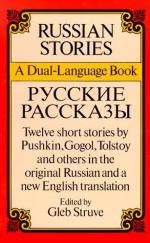|
This section contains 585 words (approx. 2 pages at 400 words per page) |

|
Realism
Most of the stories in the collection feature a strong vein of realism, where events are presented as being factual, credible, and remarkable only inasmuch as they are characteristic of a larger phenomenon. For example, Pushkin's stationmaster is a normal man working in a government job; his daughter's elopement is a story common to any place and time, and the incident is remarkable only inasmuch as it occurs again and again, the whole world around. Other stories are more fanciful, such that Turgenev's protagonist suffers from an unspecified degenerative disease while Dostoevsky's narrator overhears the conversations of the dead. Yet in both cases, the narrative structure presents a realistic interpretation of the atypical situation. For example, Turgenev's protagonist suffers physically but becomes enlightened mentally and feels that, in the balance, the tradeoff is acceptable. In the larger sense, everyone ages and dies but through the process creates a...
|
This section contains 585 words (approx. 2 pages at 400 words per page) |

|




